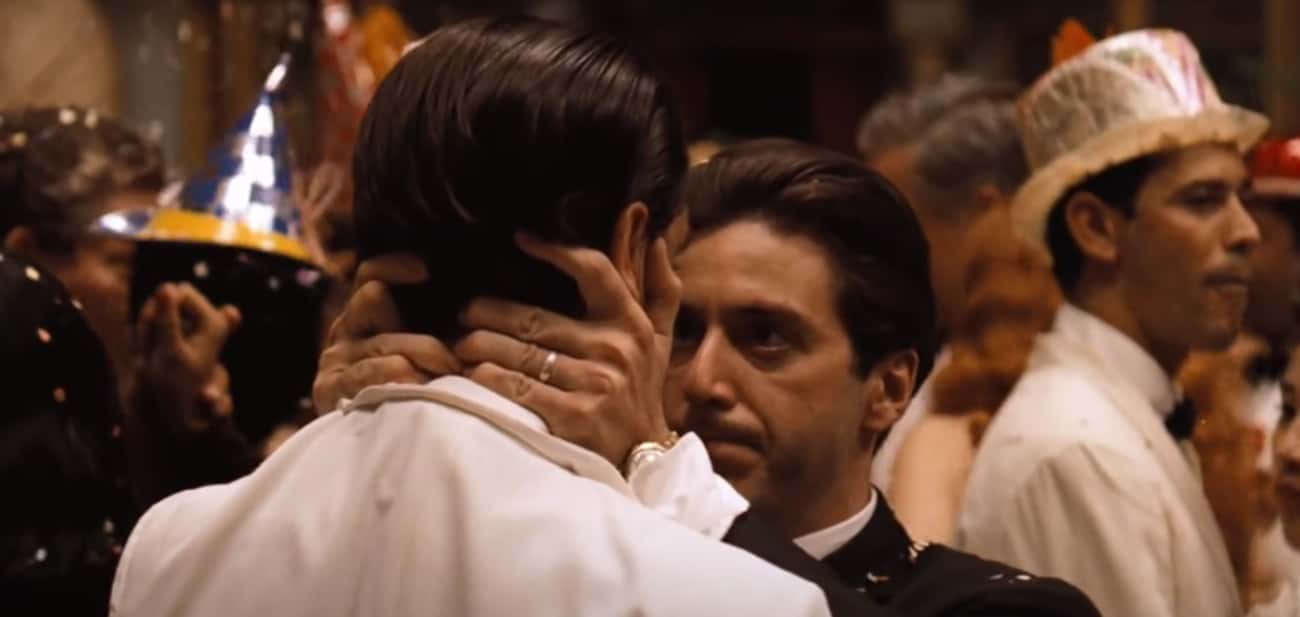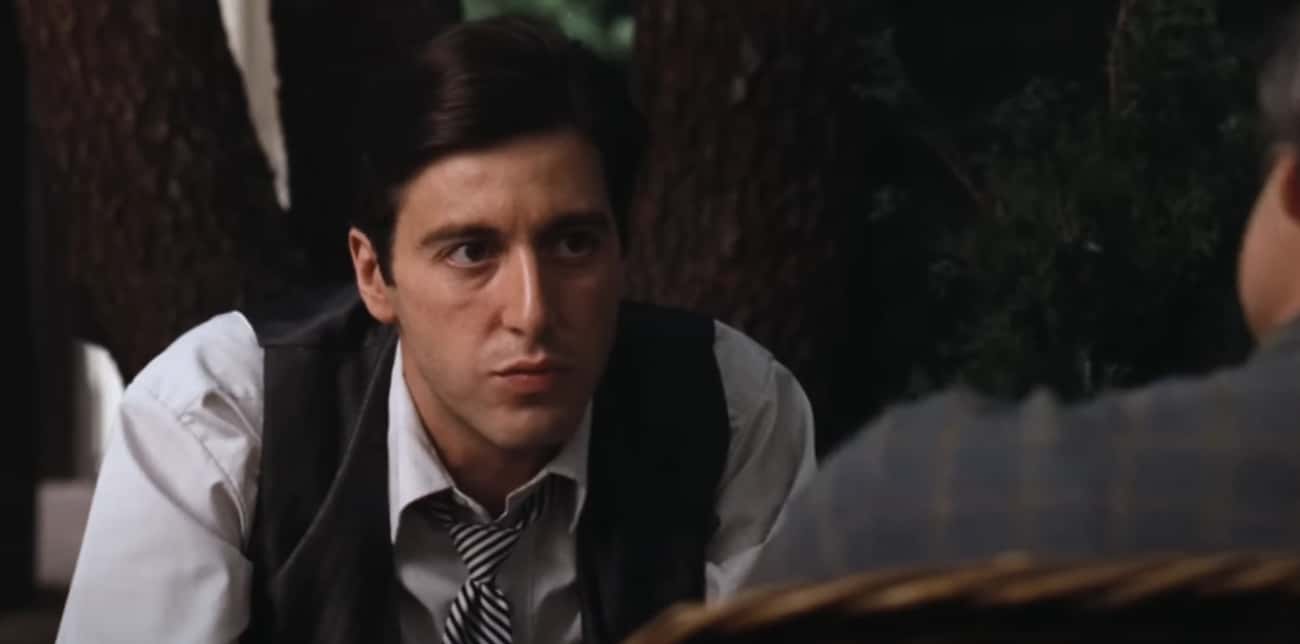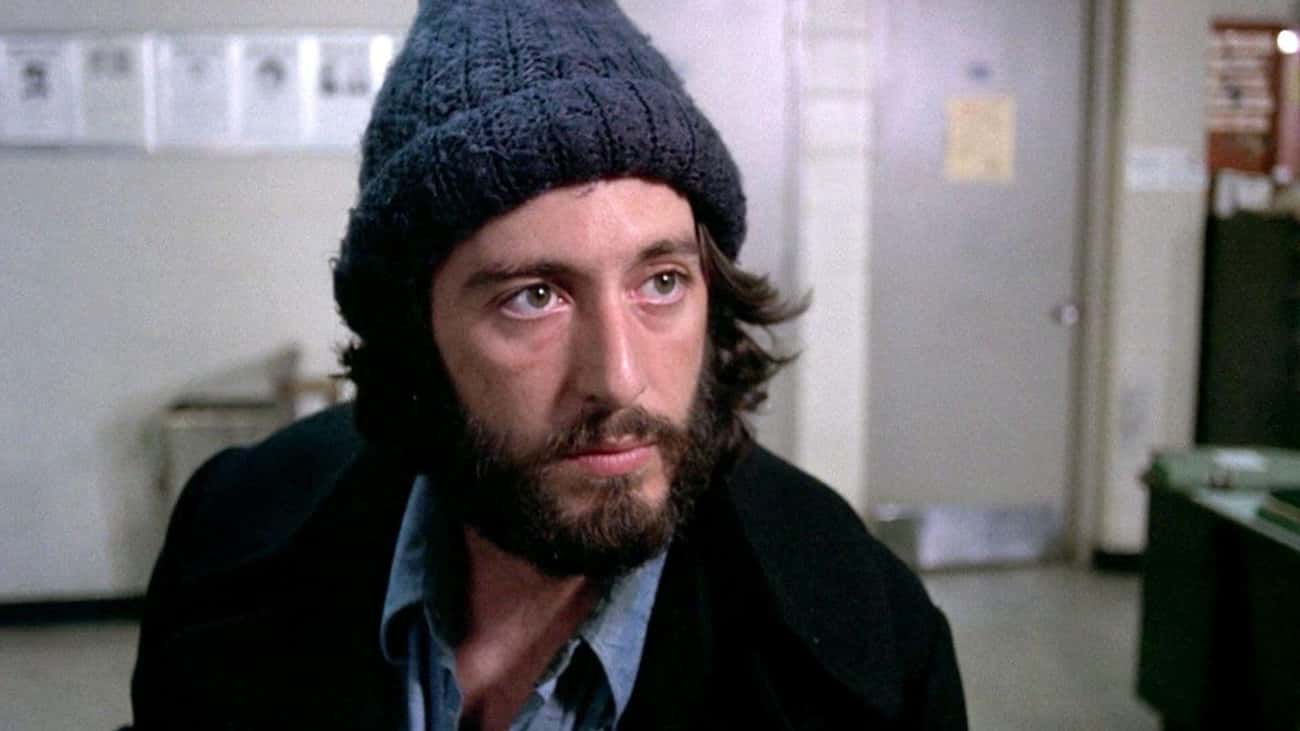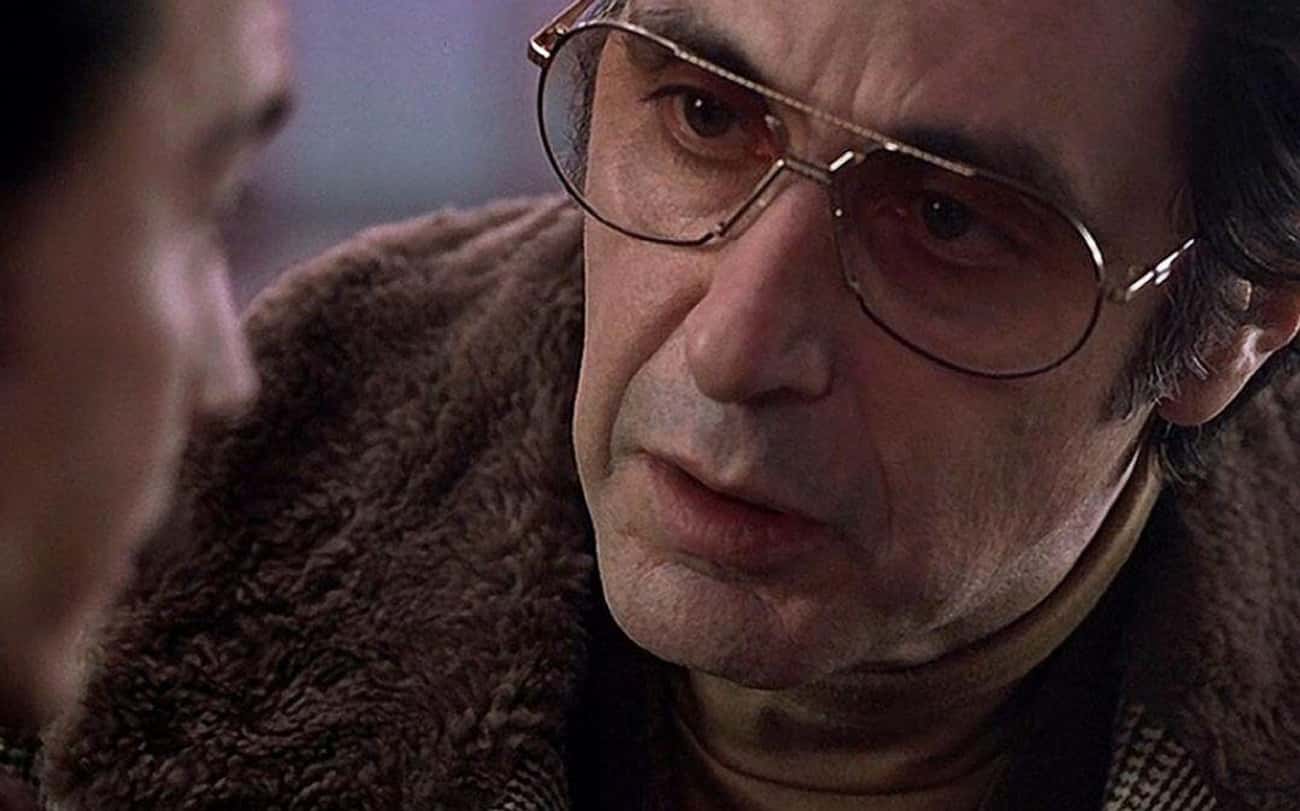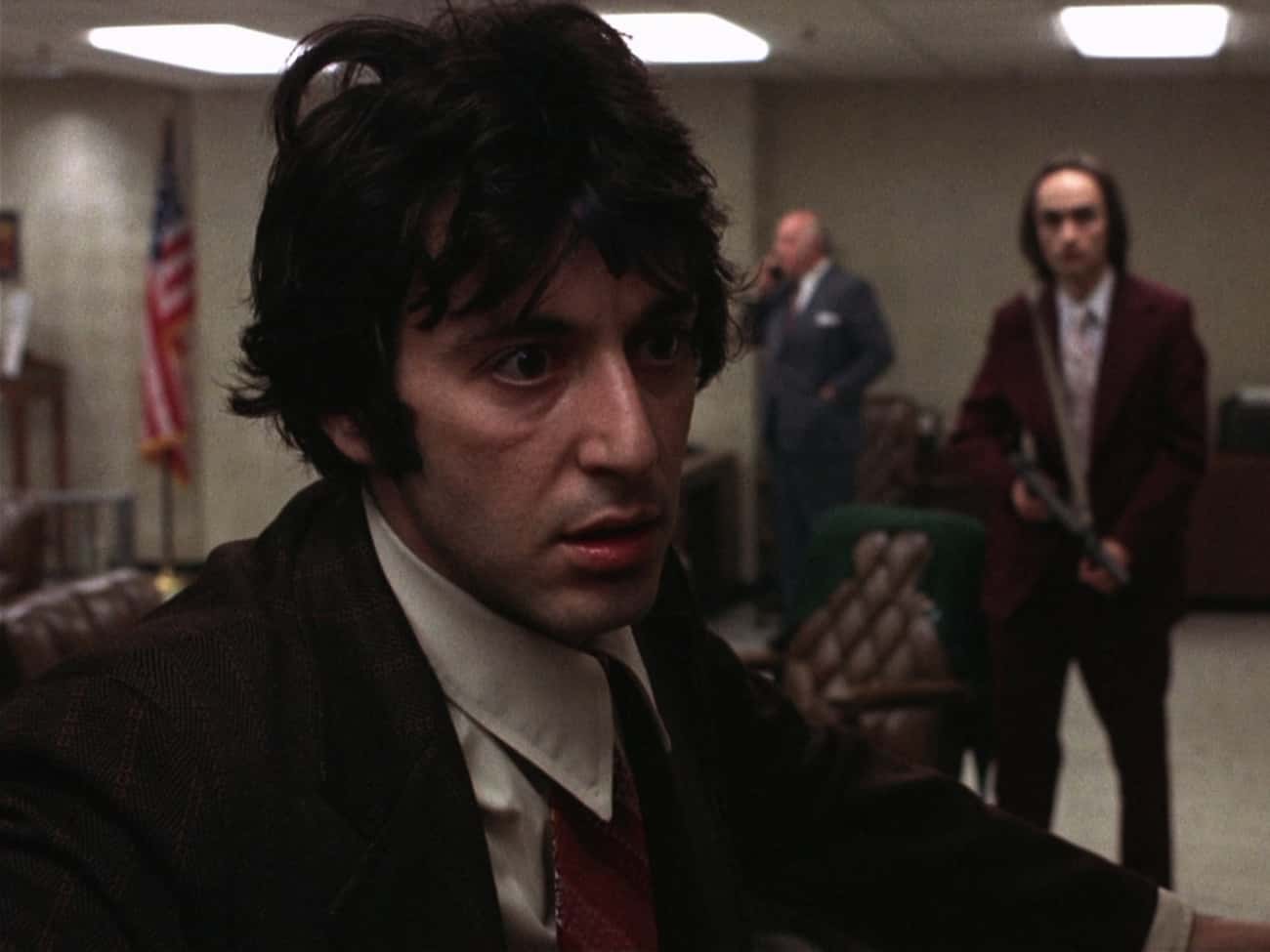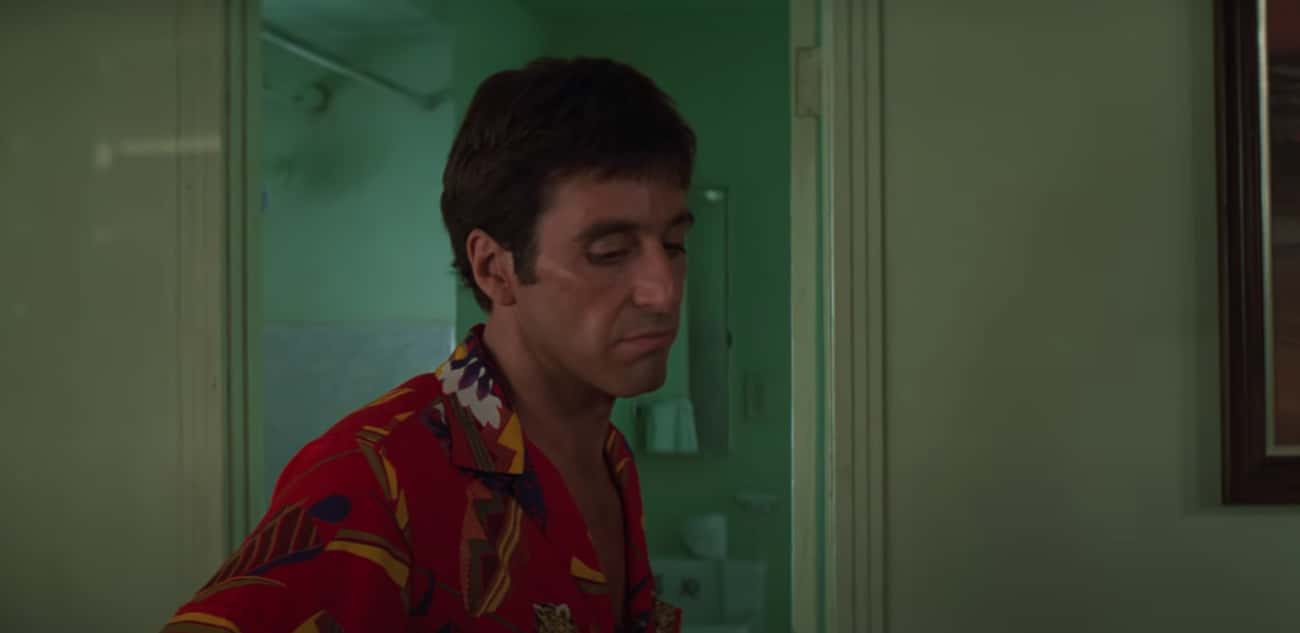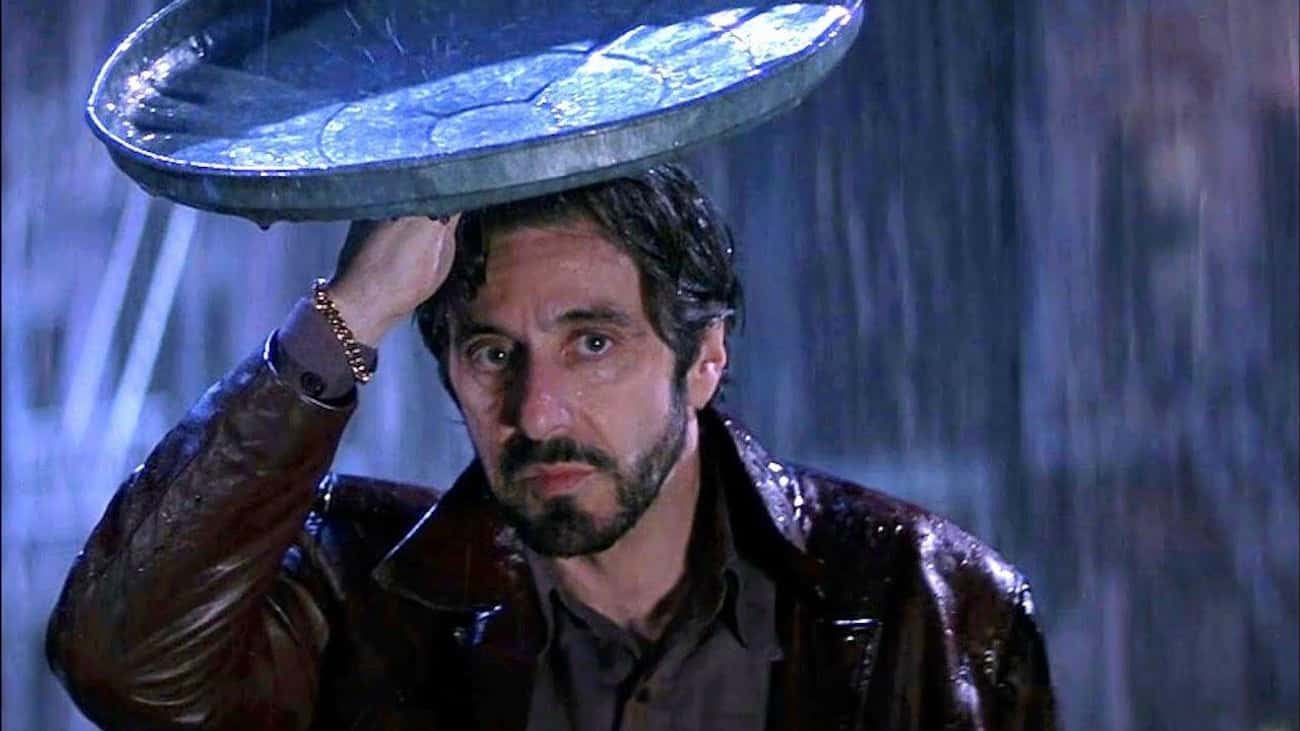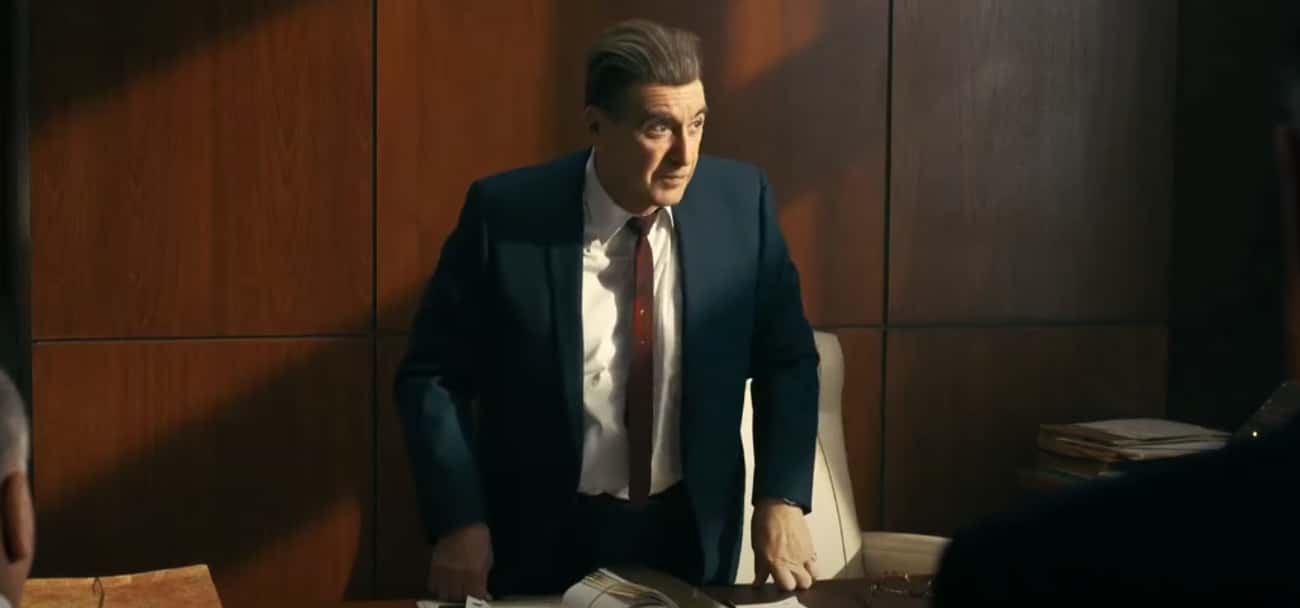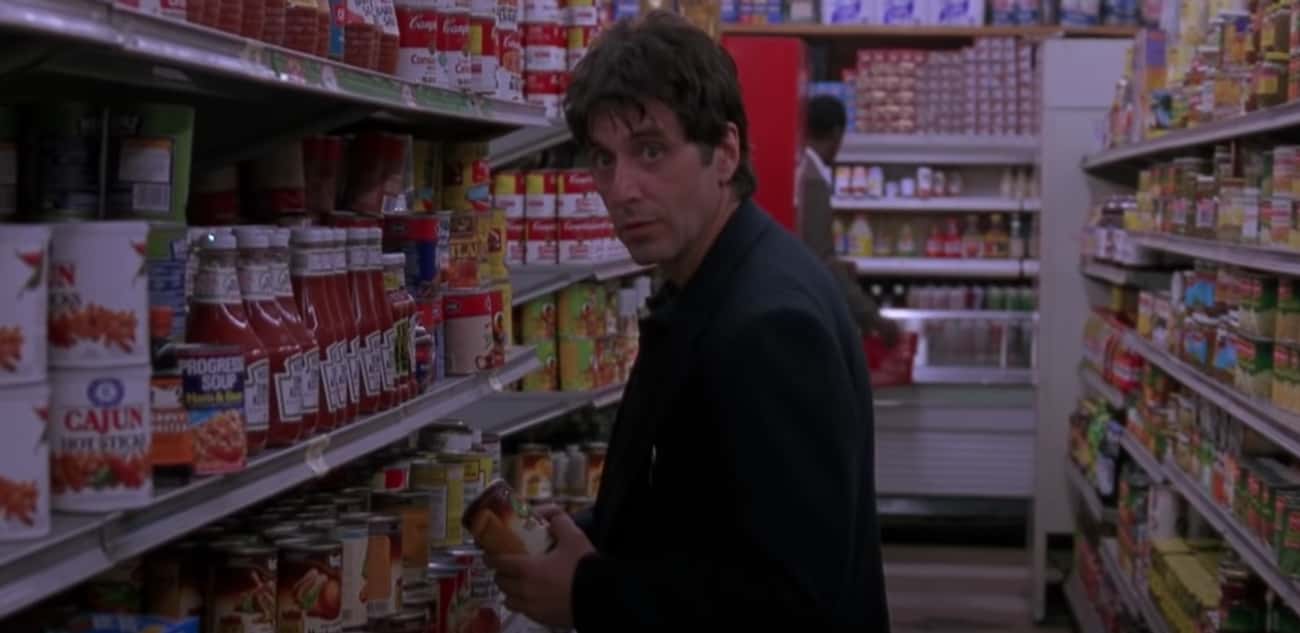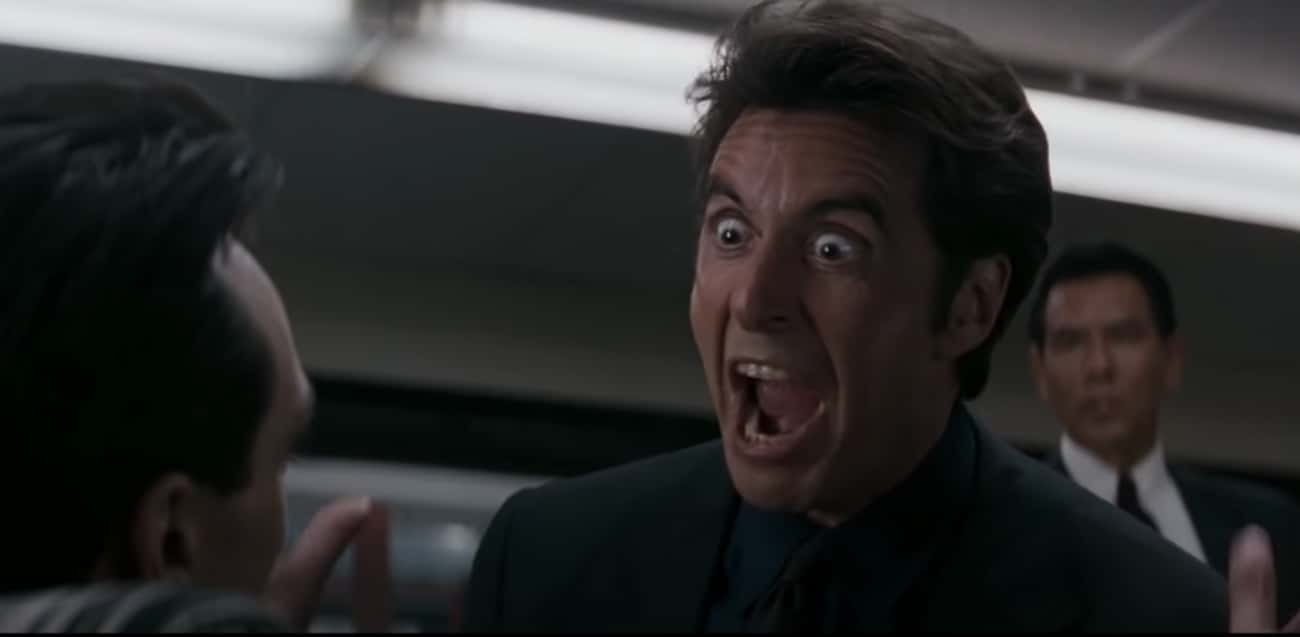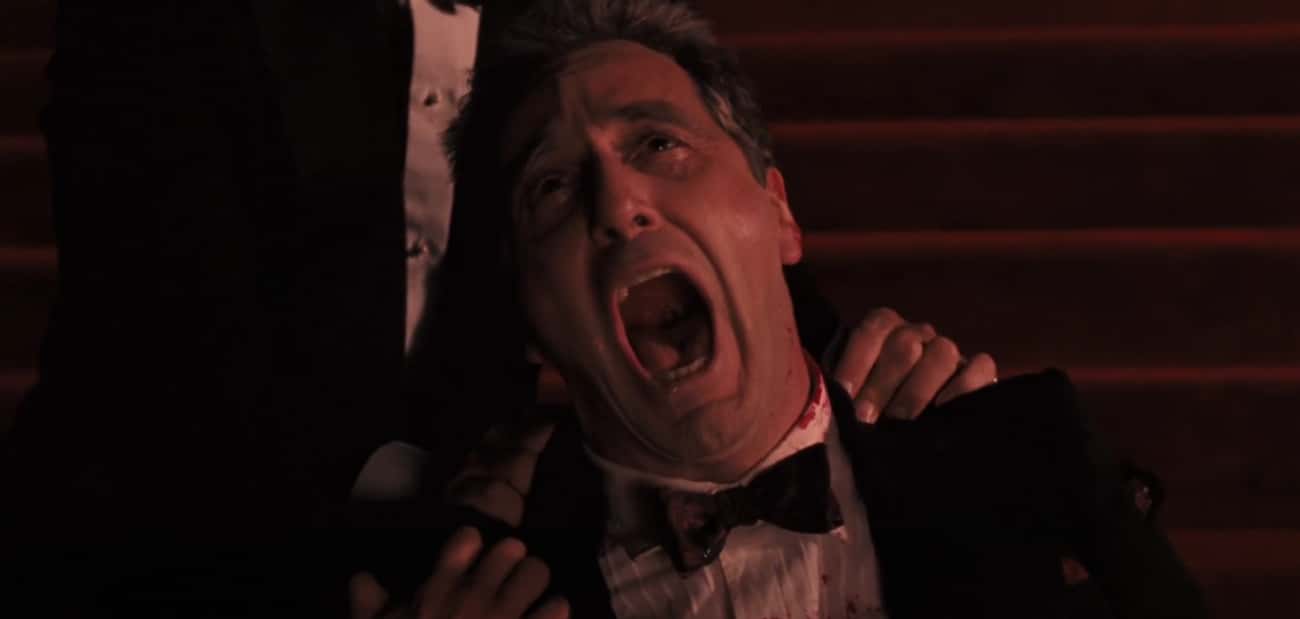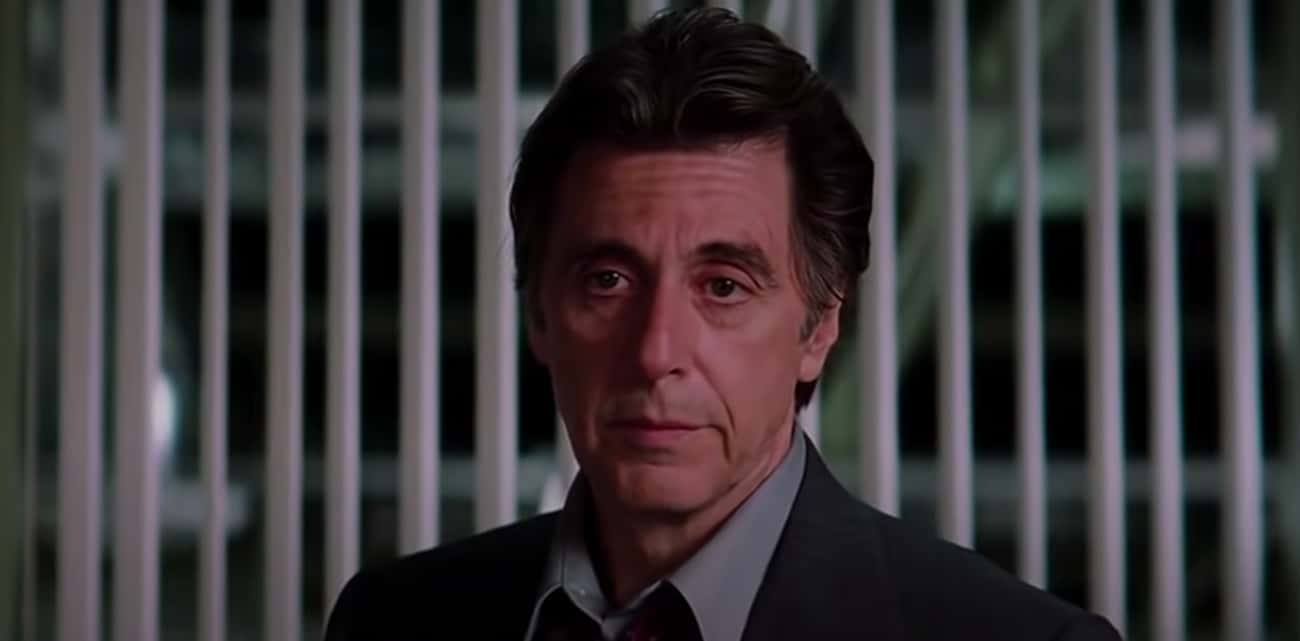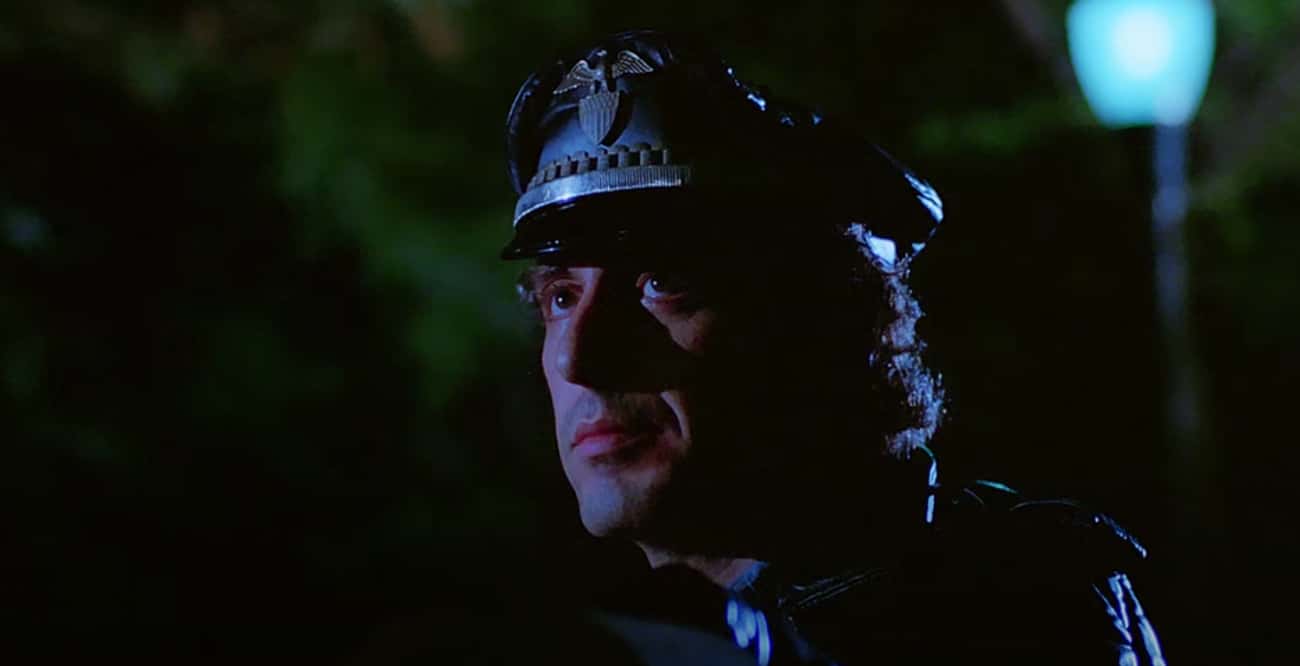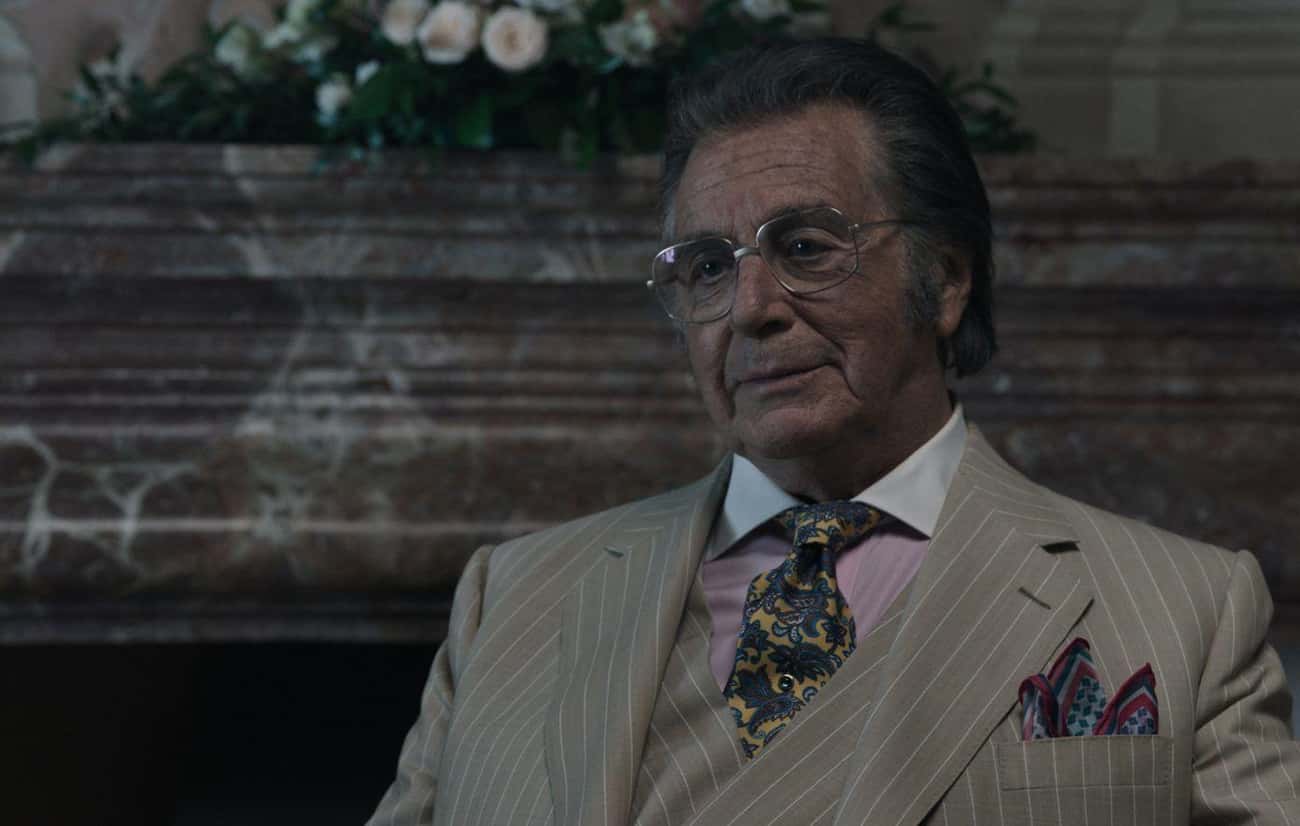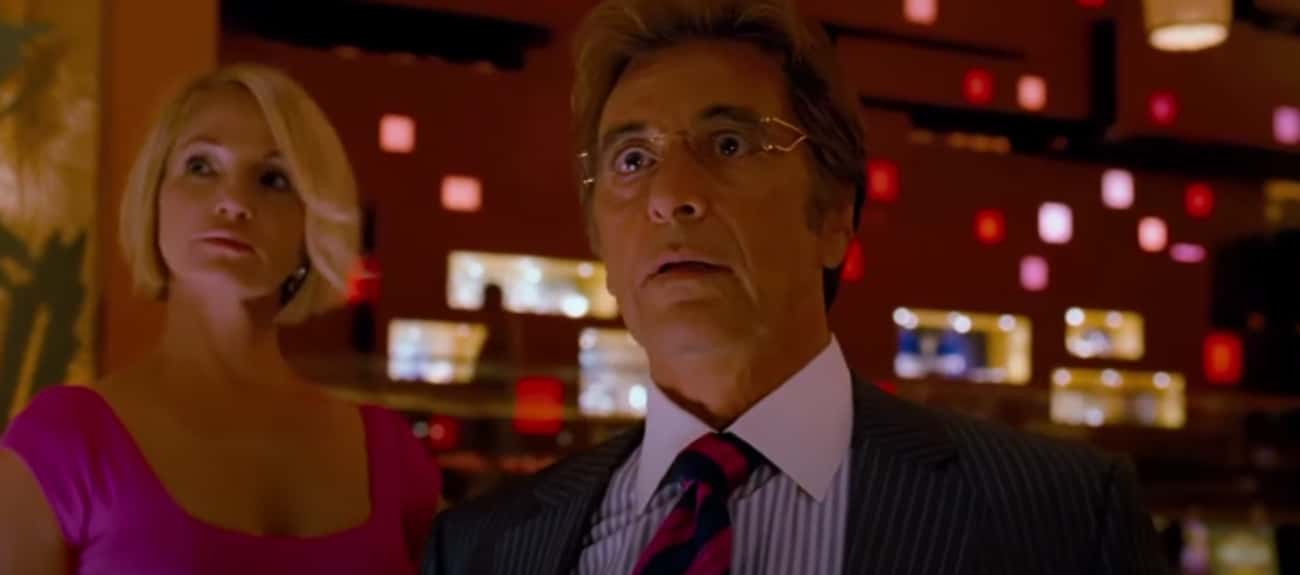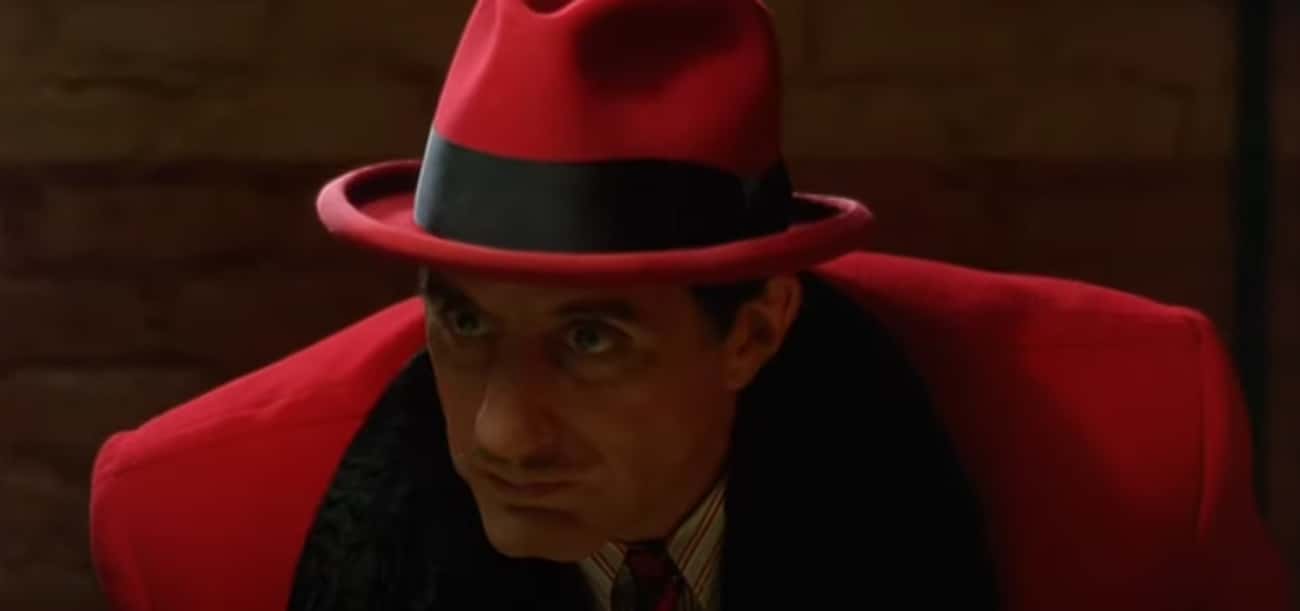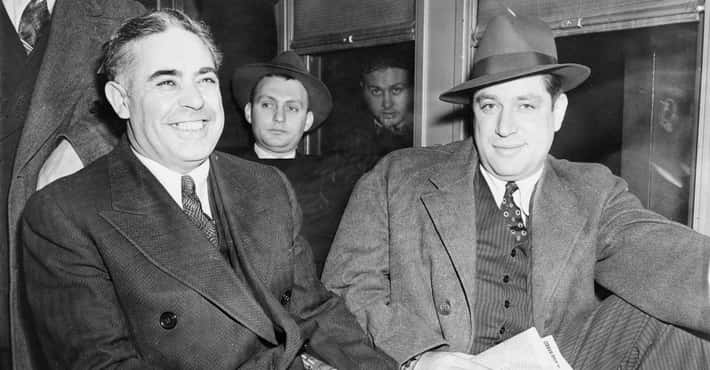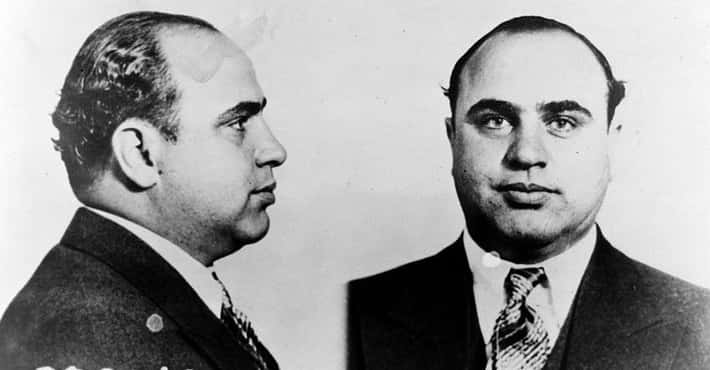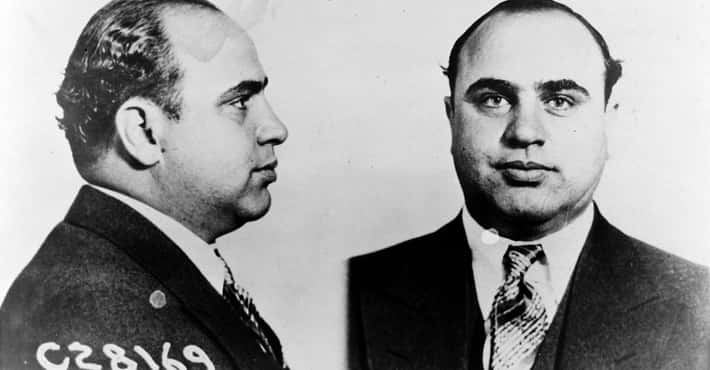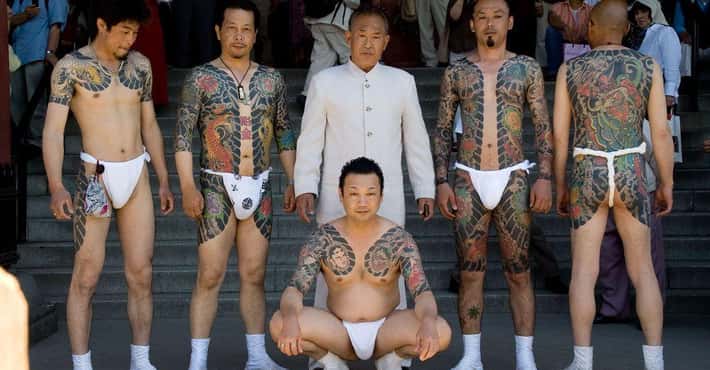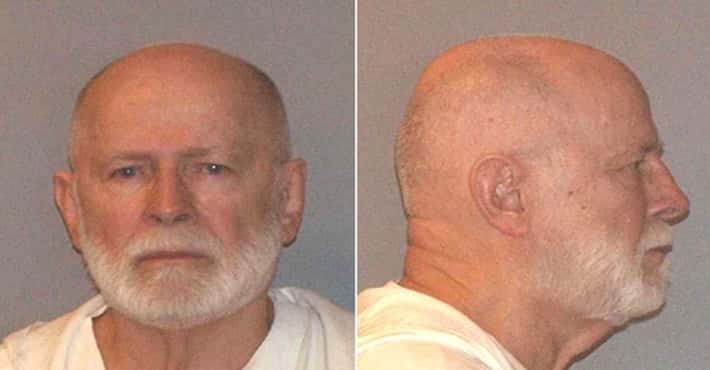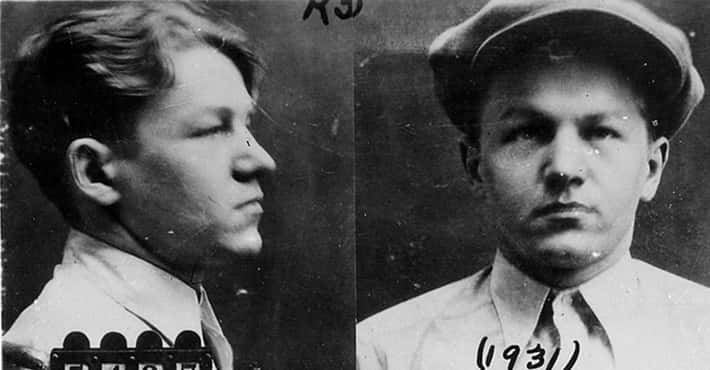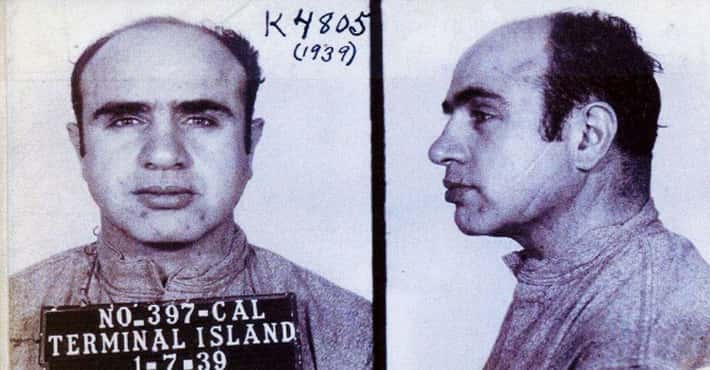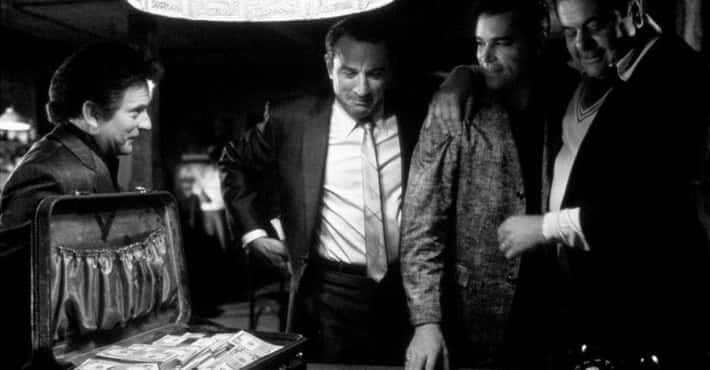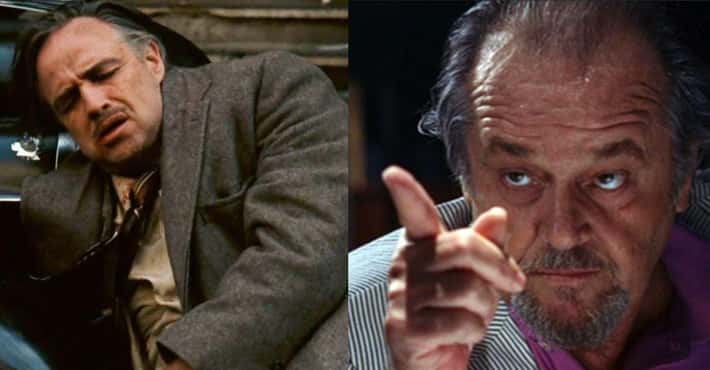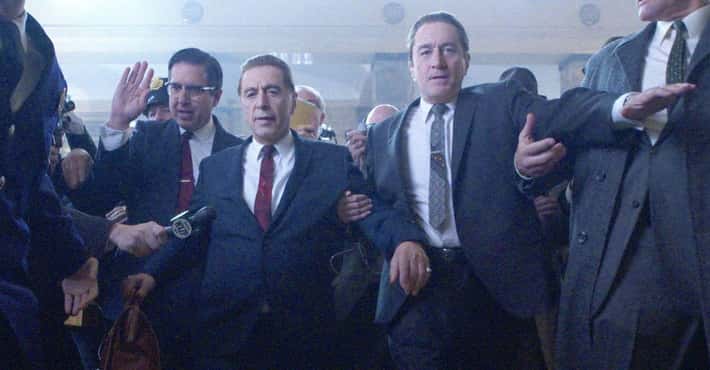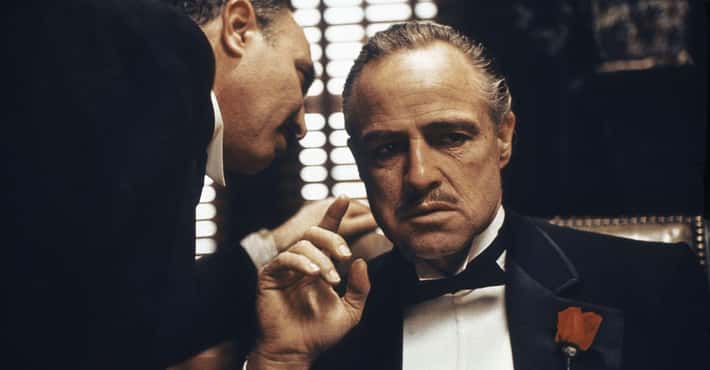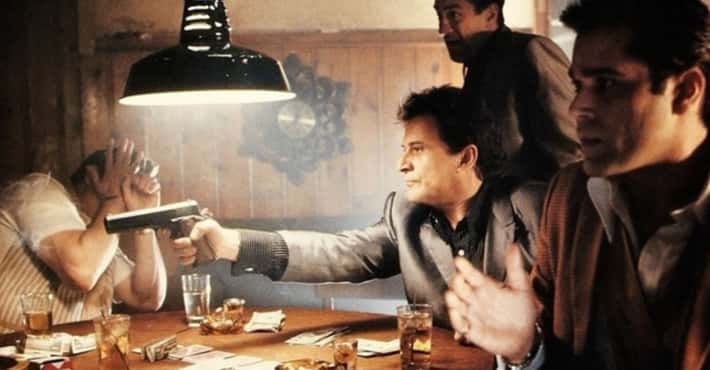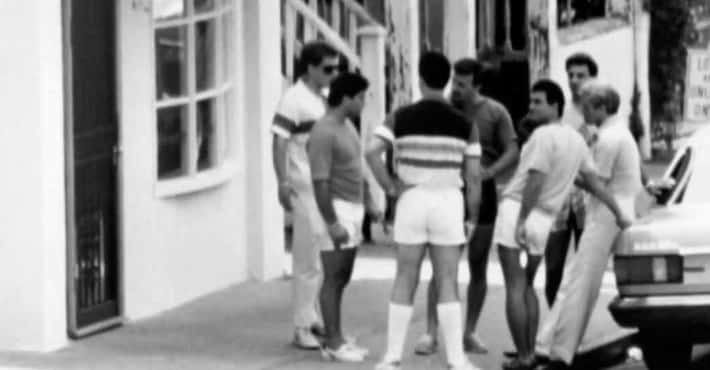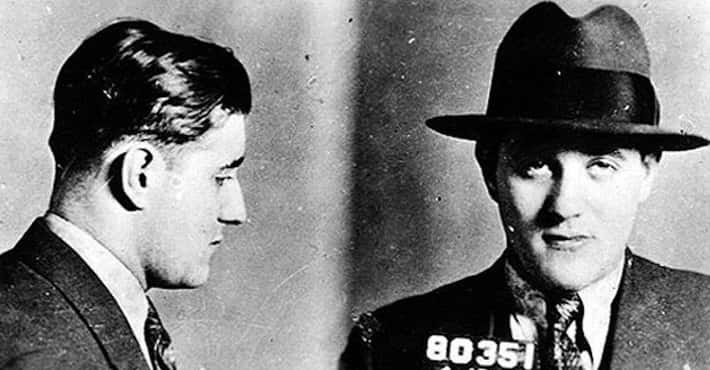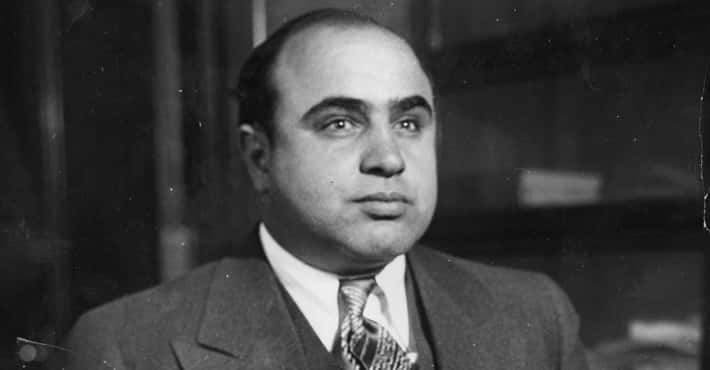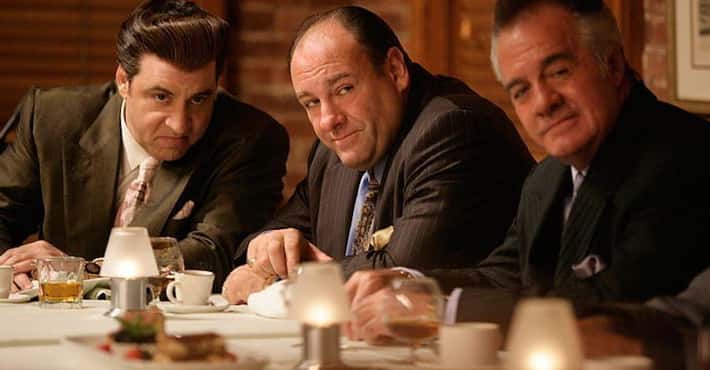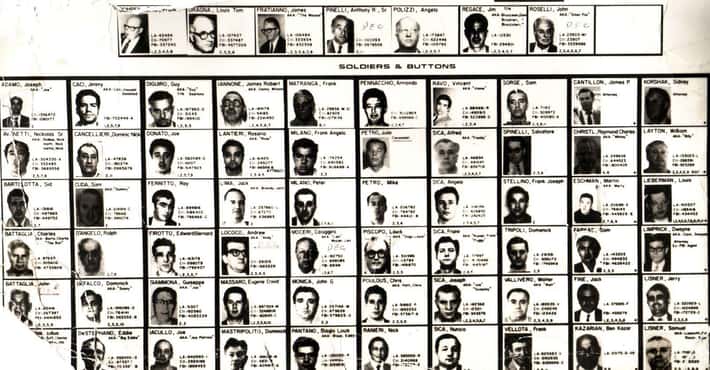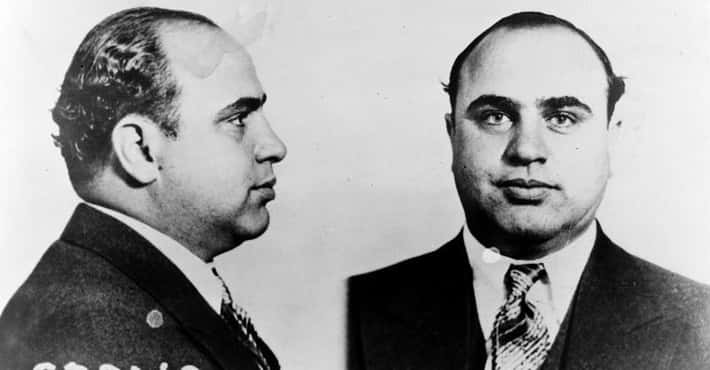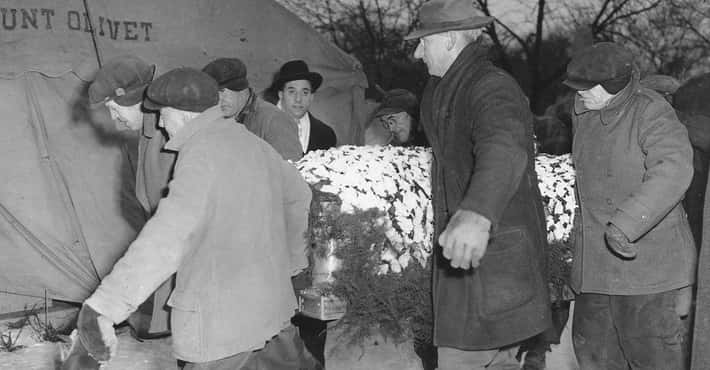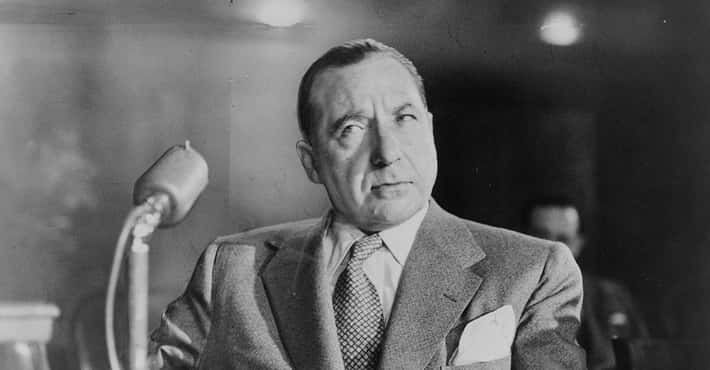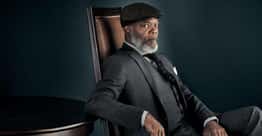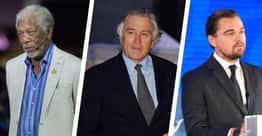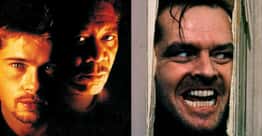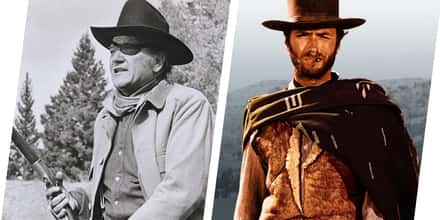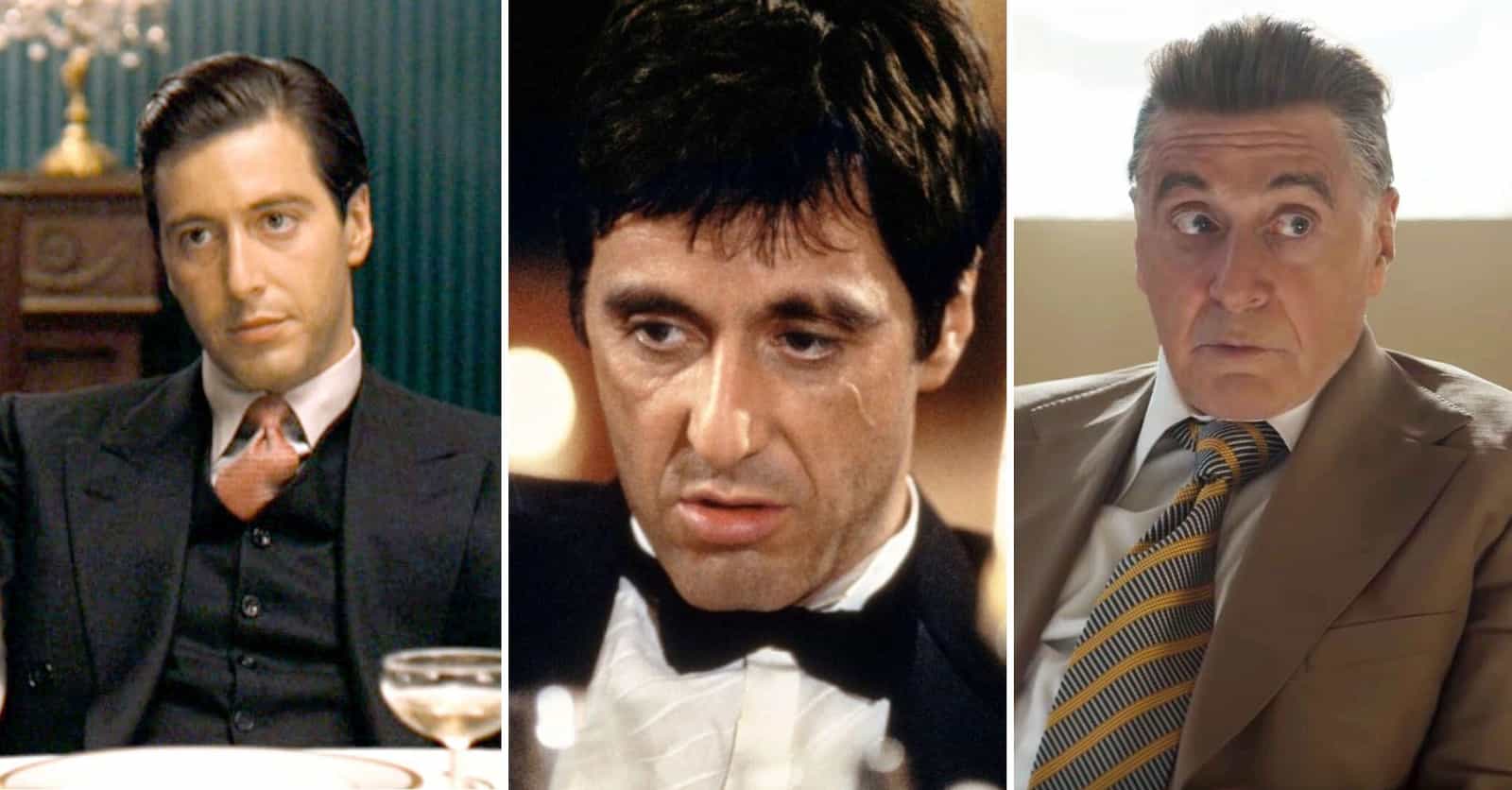
The 16 Al Pacino Crime And Gangster Movies That Prove He’s The Quintessential Mafioso
Today Al Pacino is without a doubt best known for his roles in crime movies. However, in 1972 Al Pacino was still a relatively unknown actor who had only recently transitioned from theater to film, with just a handful of credits in the latter under his belt. When he was given a chance by Francis Ford Coppola to star in The Godfather, there was concern that overlooking more well-known names might negatively impact the film. But Coppola insisted that a new face headline the project. Pacino’s performance as World War II veteran turned crime family head Micheal Corleone went on to be one of the most prominent Mafia characters in film history.
In a way this did lead to a degree of typecasting for Pacino, with many of his subsequent characters having an orientation toward crime or law enforcement. In spite of that recurring theme, he always manages to bring new angles to his performances. Any given film that he has done cannot sum up his other roles, which has lent to his ability to stay on screen for over five decades. But whether he's playing an undercover cop with high principles like in Serpico or a drug lord with more ambition than morals like in Scarface, Pacino always shows off his prowess and versatility.
- 125 VOTESPhoto: Paramount Pictures
What’s Pacino Up To? Pacino reprises his role as Michael Corleone. Here things pick up with Michael now firmly established as the head of the Corleone crime family while context for his family's origins is given through sequences depicting his father's past. The film explores Michael's ruthless consolidation of power and further descent into moral corruption as he expands the family's criminal empire.
His Performance: Pacino's performance builds on the previous film, emphasizing Michael's ability to manipulate those around him to achieve his goals. He showcases Michael's increasing authority as he leads the family with a calculated and ruthless demeanor. His personal relationships are also shown to be increasingly strained as his wife Mary opposes his actions and seeks to shield their children from his influence.
Critical Reception: Like its predecessor, The Godfather Part II received massive acclaim from critics and audiences alike, though this time around critics like Roger Ebert felt it was a step down. The film won six Academy Awards, including best picture, making it the first sequel to achieve this award. Its intricate narrative structure featuring powerful performances from Pacino and Robert De Niro as a young Vito Corleone have affirmed its reputation.
- #312 of 772 onThe Most Rewatchable Movies
- #6 of 199 onThe Best Movies Of The '70s, Ranked
- #3 of 96 onThe Very Best Oscar-Winning Movies For Best Picture
- 233 VOTESPhoto: Paramount Pictures
What’s Pacino Up To? In his breakthrough role Pacino plays Michael Corleone, the heir to the Corleone crime family. Initially distant from the family's criminal enterprises, Michael is drawn into the mafia world after a failed assassination attempt on his father Vito. He transitions from a reluctant outsider to a ruthless and cunning mafia boss, becoming a cold and calculating figure who assumes his father’s role as Don Corleone.
His Performance: Micheal is shown to be an initially respectable individual, a World War II veteran who seeks an honest life. His relationship with his love interest Kay Adams starts out relatively honest and affectionate as well. Pacino, however, does an excellent job showing Michael’s shift into a more deceitful and vengeful figure.
Critical Reception: The film received widespread critical acclaim upon its release in 1972. Among the numerous awards won were three Academy Awards, including best picture, and it solidified its place in popular culture as a masterpiece. Its iconic performances and gripping storytelling have ensured its enduring legacy, both in the crime genre and as a pivotal chapter in Pacino’s career.
More The Godfather- Dig Deeper...Small Details About 'The Godfather' Films That Demand A Rewatch
- And Deeper...Movies That Won Best Picture at the Oscars and Golden Globes
- #84 of 772 onThe Most Rewatchable Movies
- 326 VOTESPhoto: Paramount Pictures
What’s Pacino Up To? Pacino portrays Frank Serpico, a principled police officer in New York City who becomes disillusioned with the corruption within the department. In spite of backlash and threats, he works to expose the widespread misconduct among his fellow officers. Serpico’s efforts eventually bear fruit with his actions contributing to the formation of the Knapp Commission, which addressed police corruption and potential solutions.
His Performance: Pacino's performance captures the real Frank Serpico's internal struggle as he navigates the complexities of being an officer investigating police corruption. As he fully commits to becoming a whistleblower he faces increasing ostracism from his peers. His goal of forcing accountability within the NYPD ends in his decision to testify and bring change.
Critical Reception: Serpico continues to be a relevant work, given that it focuses on the need for accountability from authority figures. Among the awards Pacino won for his performance were a Golden Globe, a David di Donatello Award, and an National Board of Review Award. His introduction of Serpico’s story to the big screen is a definite highlight in Pacino’s career.
More Serpico- #53 of 199 onThe Best Movies Of The '70s, Ranked
- #101 of 240 onThe 200+ Best Movies Based On A True Story
- #63 of 165 onThe Best Political Films Of All Time
- 414 VOTESPhoto: Sony Pictures Releasing
What’s Pacino Up To? Pacino’s Benjamin "Lefty" Ruggiero is an aging member of the Bonanno crime family looking to mentor Donnie Brasco, who is secretly an undercover FBI agent. Unaware of Brasco’s true identity, Lefty comes to increasingly trust Brasco, though his suspicion never fully goes away. His faith in his would-be protege is ultimately the cause of his downfall as he is not only arrested but tainted in the eyes of the mafia for allowing an agent to get so close to the organization.
His Performance: Pacino's depiction of Lefty reveals a complex character grappling with conflicting emotions and interests. He is torn between allegiance to the Mafia and the burgeoning bond he shares with Donnie. This makes Donnie’s true identity all the more tragic for Lefty, who is left without both.
Critical Reception: As the head of a crime family, Pacino is in his element. The film was nominated for several awards, but Pacino won a Boston Society of Film Critics Award for best actor. With excellent performances from him, Johnny Depp, and Anne Heche, Donnie Brasco is a film that proves itself to new and longtime fans of their work.
More Donnie Brasco- #670 of 772 onThe Most Rewatchable Movies
- #210 of 279 on'Old' Movies Every Young Person Needs To Watch In Their Lifetime
- #10 of 59 onThe Best Movies Based on Non-Fiction Books
- 530 VOTESPhoto: Warner Bros.
What’s Pacino Up To? Pacino plays Sonny Wortzik, a Brooklyn man who attempts to rob a bank in order to finance his partner Leon Shermer's gender confirmation surgery. Sonny is a complex character with a troubled past, including a failed marriage and a history of petty crimes. He is a deeply misguided person, driven by a flawed yet well-meaning desire to right various wrongs through his crimes.
His Performance: Pacino depicts Sonny's emotional state with exceptional depth and authenticity. Sonny’s desperation is effectively translated through Pacino’s raw and vulnerable delivery. He also shows Sonny's capacity to win people over through his charisma, evidenced by the support he gains from the crowd and hostages. Through him viewers can understand the gravity of Sonny's actions as he tries to secure a better life for himself and his partner.
Critical Reception: Dog Day Afternoon earned fourteen awards upon its release, while Pacino received nominations for an Oscar, BAFTA Award, and a Golden Globe. While the film doesn’t have the same recognition among modern audiences as other works featuring Pacino, it is a solid heist film that incorporates tension and humor. That combined with its uniquely progressive themes of love and identity gives the movie strong potential to resonate with newer viewers.
More Dog Day Afternoon- #38 of 199 onThe Best Movies Of The '70s, Ranked
- #117 of 240 onThe 200+ Best Movies Based On A True Story
- #8 of 28 onThe Best Oscar-Nominated Movies of the 1970s
- 615 VOTESPhoto: Universal Pictures
What’s Pacino Up To? In an infamous role that has some surface-level similarities to Micheal Corleone, Pacino plays Tony Montana. He is a Cuban immigrant who rises to power in the Miami drug trade through ruthless ambition. Montana starts as a small-time street thug but quickly climbs the ranks, becoming a prominent cocaine kingpin known for his violent methods and extravagant lifestyle.
His Performance: Montana is portrayed by Pacino as having a volatile temperament and relentless ambition. While there are peaks into his more vulnerable qualities, these tend to be overshadowed by his intensity and brutality. His desire for wealth and power simply come before most other aspects of his life, making him a perfect anti-hero.
Critical Reception: Scarface is arguably on par with The Godfather in terms of his character’s ability to remain in the public consciousness. The film has been referenced and parodied in pop culture for decades, though the nuances of the plot and Montana’s character don’t always come through. Upon its release the film was nominated for three Golden Globes, with Pacino himself being nominated for best actor in a drama.
More Scarface- Dig Deeper...The Real-Life People, Places, And Events That Inspired 'Scarface'
- #73 of 399 onThe Best Movies Of The 1980s, Ranked
- #48 of 149 onMovies That Should Never Be Remade
- 77 VOTESPhoto: Universal Pictures
What’s Pacino Up To? Here he plays Carlito Brigante, a Puerto Rican gangster seeking a new life after being released from prison. Carlito strives to leave his past behind and start anew, but finds himself pulled back into the world of crime due to past loyalties and an inability to break old habits. Carlito's journey is one of lost potential, ultimately left to die after encouraging his pregnant lover Gail to escape with the money he acquired.
His Performance: Carlito finds his efforts to forge a legitimate lifestyle sabotaged by the renewed promise of easy money. Through his performance Pacino conveys the tragedy of Carlito’s character and the futility of his efforts to better himself. He conveys the overwhelming pull of Carlito's past as the negative influences drag him from a promising new life.
Critical Reception: While there were some negative reviews, Carlito’s Way performed fairly well at the box office. It saw several nominations including two Golden Globes, but did not ultimately win any major accolades. Though not too well-known, it is a classic for fans of Pacino’s work in the crime genre.
More Carlito's Way - 813 VOTESPhoto: Netflix
What’s Pacino Up To? In this film he portrays the real-world teamster Jimmy Hoffa whose death continues to maintain an allure for its mystery. He is a powerful and charismatic union leader who finds himself wading through a complex web of organized crime and politics. He is dedicated to his cause of bettering the pay and conditions of workers, but his private relationship with the Mafia helps lead to his demise.
His Performance: Alongside his own unique spin, Pacino's portrayal captures Hoffa's magnetic charm and fiery temper. There is a real authenticity to it as it shows Hoffa try to deal with the consequences of his actions. In spite of the character’s real world disappearance, Pacino's interpretation still manages to inspire hope that he will overcome his fate.
Critical Reception: The Irishman was well received and was noted for its reunion of director Martin Scorsese with actors Robert De Niro and Joe Pesci. These three legendary figures in the crime genre, plus Pacino, made for a truly noteworthy film. Among the awards it was nominated for were ten Oscars, including best supporting actor for Pacino's performance.
- 910 VOTESPhoto: Universal Pictures
What’s Pacino Up To? Pacino is Frank Keller, a detective in New York City tasked with investigating several murders linked to a dating service. Although he is initially emotionally withdrawn after a recent divorce, Frank becomes deeply invested in the case. He forms a romantic connection with a suspect, Helen Cruger, which hinders his judgment as he tries to find the truth.
His Performance: As the investigation progresses, Frank confronts his own vulnerabilities and struggles with trust. This leaves him facing a moral dilemma between his duty as a cop and his feelings for the suspicious Helen. Pacino's portrayal captures Frank's internal conflict and transformation with great depth.
Critical Reception: While Sea of Love is one of many films featuring Pacino that tends to get overshadowed by his other projects, it is a compelling film that can easily grab viewers’ attention. While not as complicated as some of his other roles, Pacino’s character is decently complex so as to intrigue audiences. Roger Ebert praised the film and Pacino’s performance when it was released, and the latter was nominated for a Golden Globe the following year.
More Sea of Love- #161 of 252 onThe 200+ Best Psychological Thrillers Of All Time
- #355 of 399 onThe Best Movies Of The 1980s, Ranked
- #48 of 83 onThe Best Movies Of 1989, Ranked
- 1013 VOTESPhoto: Warner Bros.
What’s Pacino Up To? Against the backdrop of skilled bank robbers running amok across Los Angeles, Pacino plays detective Vincent Hanna. Hanna finds himself increasingly ensconced in the case, largely at the expense of his relationship with his wife and stepdaughter. In spite of the personal toll, Hanna succeeds in stopping most of the robbers including their leader Neil McCauley.
His Performance: While he does have moments of vulnerability, Pacino commands the majority of scenes he’s in as Hanna often veers into over-the-top and eccentric rants. Behind the scenes, an early storyline featured Hanna as a cocaine user. Even though this was overtly cut, director Micheal Mann had Pacino continue to deliver his lines as if the character were using.
Critical Reception: Heat has proven to be an exceptionally influential heist film and is a popular example of Pacino’s more recent work. While it didn’t win any major awards after its release, Heat has continued to maintain a healthy following up to the present. One of its biggest impacts in cinema was to influence director Christopher Nolan’s portrayal of Gotham City in The Dark Knight.
More Heat- #72 of 252 onThe 200+ Best Psychological Thrillers Of All Time
- #393 of 769 onThe Most Rewatchable Movies
- #60 of 379 onThe Best Movies Of The 1990s
- 113 VOTESPhoto: Paramount Pictures
What’s Pacino Up To? In the final entry into the Godfather franchise, Pacino returns once again as an older Michael Corleone. He finds himself grappling with the consequences of his past decisions and seeking redemption. As he attempts to legitimize the Corleone family and distance it from its criminal past, Michael faces challenges from within and outside the family.
His Performance: The film features a fatalistic end for Michael. In spite of his efforts to better the Corleone family he ends up losing his daughter and wife, spending his final days old and alone. Pacino does a good job in showing the regret, frustration, and eventual anguish that Michael faces throughout his futile endeavor.
Critical Reception: This third entry is widely regarded as the weakest film of the Godfather trilogy, with many taking issue with its structure and performances. Although it was nominated for several awards including seven Golden Globes and seven Academy Awards, two of the awards it did "win'" were Razzie Awards. In spite of its relative flaws compared to the previous films, Part III is a fitting conclusion to Michael's exploits and shows how empty Mafia life can become.
- #258 of 279 on'Old' Movies Every Young Person Needs To Watch In Their Lifetime
- #221 of 379 onThe Best Movies Of The 1990s
- #38 of 94 onThe 90+ Best Mafia Movies Of All Time
- 1210 VOTESPhoto: Warner Bros. Pictures
What’s Pacino Up To? Here Pacino is Will Dormer, a detective from Los Angeles who travels to Alaska alongside his partner Hap Eckhart for a murder case. After he accidentally shoots and kills Eckhart, who was also planning to testify against Dormer over a prior incident, Dormer is left sleep deprived and desperate to avoid punishment. His actions lead him to a tragic demise, fatally wounded and wishing to finally sleep.
His Performance: Pacino does an excellent job displaying Dormer’s desperation. His character is not malevolent and is full of regret, yet he can’t help but harm others as he seeks to hide his actions. Dormer’s insomnia-fueled stress and confusion is also well-addressed by Pacino, and it not only leads to the fateful shooting of his partner but also routinely plagues him throughout the film.
Critical Reception: Insomnia only had a handful of nominations for various awards, with the only win being a London Critics Circle Film Award for director Christopher Nolan. That being said the film received positive reviews with leads Pacino and Robin Williams being lauded for their performances. Dormer is an exceptionally complex character who fits right in with the roster of other law enforcement roles given life by Pacino.
More Insomnia- #82 of 253 onThe 200+ Best Psychological Thrillers Of All Time
- #50 of 114 onThe Greatest Movie Remakes Of All Time
- #51 of 81 onThe 75+ Best Whodunit Murder Mystery Movies
- 131 VOTESPhoto: United Artists
What’s Pacino Up To? Pacino plays Steve Burns, a police officer who goes undercover to identify a serial killer who has been targeting gay men. Burns, relatively inexperienced in undercover work, experiences both danger and empathy as he works to uncover the truth from within the gay community. The ordeal leaves him questioning both his personal and professional identities, and with it the uncertainty whether the man he arrested is even the original killer he was looking for.
His Performance: Burns faces resistance and suspicion from both the police force and the community he is investigating, making it difficult to gain trust and gather information. The elusive nature of the killer and the secrecy surrounding the subculture also present hurdles. Pacino manages to portray the character’s unresolved tension with remarkable clarity.
Critical Reception: Cruising has a complicated reputation. On the one hand contemporary activists pushed against what was seen as an exploitative and stereotypical film. On the other it presents Burns as empathetic toward a community that had regularly been derided in pop culture. It is because of this that, even though the film did not receive any accolades, Cruising is a stand out entry into Pacino’s body of work.
More Cruising- #44 of 64 onThe Best Movies Of 1980
- #7 of 13 onPeople Share The Creepiest Movie Facts They Know
- #10 of 18 onUnhinged Serial Killer Movies That Aren't Mainstream For A Reason
- 141 VOTESPhoto: United Artists Releasing
What’s Pacino Up To? In this film Pacino plays Aldo Gucci, the eldest son of the Gucci founder. Aldo is portrayed as a shrewd businessman who initially backs his nephew Maurizio's marriage to Patrizia Reggiani. Tensions between them escalate, however, triggering a power struggle that ends in Aldo's expulsion from the company.
His Performance: As the eldest son of founder Guccio Gucci, he is deeply invested in maintaining the company's prestige and success. It is because of this that he supported Maurizio's marriage to Reggiani, seeing it as a means to uphold familial ties. Pacino manages to effectively capture the blend of ambition and vulnerability that defines his arc.
Critical Reception: While the film didn’t win any major awards, it was a nominee for several including at the 94th Academy Awards and the 79th Golden Globes Awards. It was a success among audiences upon its release and earned praise for its performances and set design.
- 151 VOTESPhoto: Warner Bros. Pictures
What’s Pacino Up To? In the film he portrays Willy Bank, a wealthy casino owner in Las Vegas. Bank's background is one of success in the gambling industry, having built his empire through ruthless methods. He finds himself the target of revenge by Danny Ocean and his crew, who strive to sabotage his new casino after Bank manipulated and double-crossed Reuben Tishkoff.
His Performance: Pacino’s performance embodies the greed and arrogance that are so central to Bank. With cold faux-warmness he informs Tishkoff that he took control of the latter’s fledgling casino out from under him. His insincerity with other characters is similarly clear to viewers while Pacino maintains a subtlety that keeps it from being too overpowering.
Critical Reception: The film was well received and was both nominated and won several awards. Pacino himself was nominated for a Teen Choice Award for Best Villain. As with the other films of the franchise Ocean’s Thirteen still has an audience, and it is due in no small part to Pacino’s Willy Bank being an unforgettable opponent to the protagonists.
More Ocean's Thirteen- #505 of 772 onThe Most Rewatchable Movies
- #25 of 139 onThe Best Movies Of 2007
- #51 of 104 onThe 100+ Best Third Movies In A Film Series
- 163 VOTES
What’s Pacino Up To? Here he plays Alphonse “Big Boy” Caprice, a ruthless crime boss determined to control the city's underworld. He is exceptionally callous, even killing his own mentor after deciding he was an obstacle. Caprice's efforts to gain power through murder, kidnapping, and manipulation pits him against the yellow-clad detective Dick Tracy, his biggest adversary.
His Performance: Though visually distinct from the character’s comic book iteration, Pacino does well to translate the character’s ambition through his intense delivery. He is able to strike a comfortable balance between humor and menace in his performance. Caprice is a perfect counter to the comparatively collected and serious Tracy.
Critical Reception: Although not as iconic as some of his other roles, Pacino’s portrayal of Caprice is still an entertaining spectacle. It has a nostalgic quality in its aesthetic and stands out among Pacino’s other works once noticed. The film and its cast were nominated for over thirty awards including seven Oscars and seven BAFTA Awards, but most of the actual wins were related to its music, art direction, and makeup.
More Dick Tracy- Dig Deeper...'Dick Tracy' Was A Prestige Comic Book Movie That Came Out 25 Years Too Early
- #360 of 379 onThe Best Movies Of The 1990s
- #263 of 372 onThe Best Movies Based On Books


